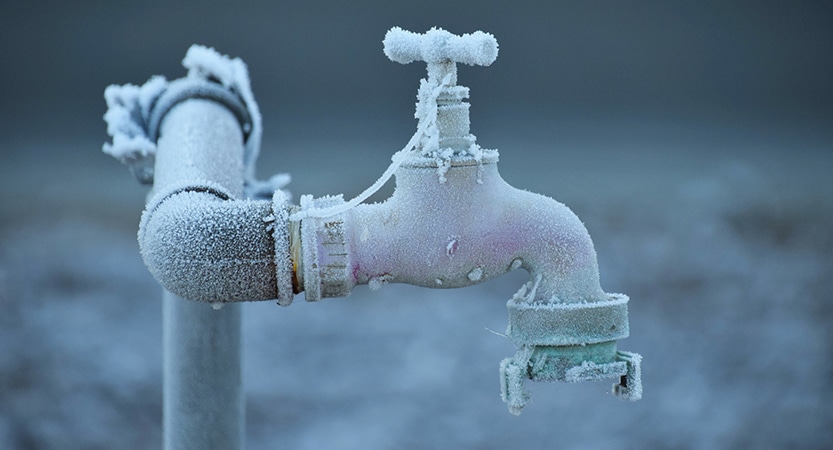Ways to Safeguard Your Pipes from Cold Weather: Specialist Advice
Ways to Safeguard Your Pipes from Cold Weather: Specialist Advice
Blog Article
The article below in relation to How To Avoid Freezing Pipes is quite compelling. Try it and draw your own ideas.

Winter can ruin your plumbing, specifically by freezing pipelines. Below's just how to avoid it from happening and what to do if it does.
Intro
As temperature levels drop, the risk of icy pipes rises, possibly bring about costly repair services and water damages. Understanding exactly how to avoid icy pipes is essential for home owners in cold climates.
Comprehending Frozen Pipes
What creates pipes to freeze?
Pipelines ice up when subjected to temperature levels below 32 ° F (0 ° C) for prolonged durations. As water inside the pipes freezes, it broadens, taxing the pipe wall surfaces and potentially creating them to rupture.
Threats and damages
Icy pipelines can bring about supply of water disturbances, residential or commercial property damages, and costly repair work. Burst pipelines can flooding homes and create extensive architectural damage.
Indicators of Frozen Water Lines
Determining icy pipes early can stop them from breaking.
Exactly how to identify icy pipelines
Look for decreased water circulation from taps, unusual smells or sounds from pipes, and visible frost on subjected pipelines.
Prevention Tips
Shielding susceptible pipelines
Wrap pipelines in insulation sleeves or use warm tape to safeguard them from freezing temperatures. Focus on pipelines in unheated or outside locations of the home.
Heating techniques
Maintain interior spaces sufficiently heated, particularly locations with plumbing. Open cabinet doors to enable cozy air to flow around pipes under sinks.
Securing Outdoor Plumbing
Garden hoses and exterior faucets
Disconnect and drain pipes yard hose pipes before wintertime. Install frost-proof spigots or cover outdoor taps with insulated caps.
What to Do If Your Pipelines Freeze
Immediate actions to take
If you suspect icy pipelines, keep taps open up to relieve pressure as the ice thaws. Use a hairdryer or towels soaked in hot water to thaw pipelines gradually.
Long-Term Solutions
Architectural changes
Think about rerouting pipes far from outside wall surfaces or unheated locations. Add extra insulation to attics, basements, and crawl spaces.
Updating insulation
Invest in top notch insulation for pipes, attic rooms, and walls. Appropriate insulation aids keep consistent temperature levels and minimizes the danger of icy pipes.
Verdict
Preventing icy pipelines requires positive procedures and fast feedbacks. By comprehending the reasons, signs, and safety nets, homeowners can protect their plumbing during winter.
6 Proven Ways to Prevent Frozen Pipes and Protect Your Home
Disconnect and Drain Garden Hoses
Before winter arrives, start by disconnecting your garden hoses and draining any remaining water. Close the shut-off valves that supply outdoor hose bibs and leave the outdoor faucet open to allow any residual water to drain. For extra protection, consider using faucet covers throughout the colder months. It’s also important to drain water from any sprinkler supply lines following the manufacturer’s directions.
Insulate Exposed Pipes
Insulating your pipes is an effective way to prevent freezing. Pipe insulation is readily available at home improvement stores and is relatively inexpensive. Pay close attention to pipes in unheated areas such as the attic, basement, crawl spaces, or garage. Apply foam insulation generously to create a buffer against the cold. You can also wrap your pipes in heat tape or thermostat-controlled heat cables for added warmth.
Seal Air Leaks
Inspect your home for any cracks or openings that could let in cold air. Seal any holes around the piping in interior or exterior walls, as well as the sill plates where your home rests on its foundation. Additionally, make sure to keep your garage door closed unless you’re entering or exiting. Leaving it open creates a significant air leak that can lead to frozen pipes.
Allow Warm Air Circulation
During cold snaps, it’s essential to allow warm air to circulate evenly throughout your home. Leave interior doors ajar to promote better airflow. Open kitchen and bathroom cabinets to help distribute heat consistently around the rooms. If you have small children or pets, be sure to remove any household chemicals or potentially harmful cleaners from open cabinets for safety.
Let Faucets Drip
A small trickle of water can make a big difference in preventing ice formation inside your pipes. When temperatures drop significantly, start a drip of water from all faucets served by exposed pipes. This continuous flow helps prevent the water from freezing. Additionally, running a few faucets slightly can relieve pressure inside the pipes, reducing the chances of a rupture if the water inside does freeze.
https://choateshvac.com/6-proven-ways-to-prevent-frozen-pipes-and-protect-your-home/

We are very drawn to Prevent Frozen Pipes and I am hoping you appreciated the entire piece. Sharing is nice. One never knows, you may be doing someone a favor. I love your readership.
Schedule Your Service Report this page